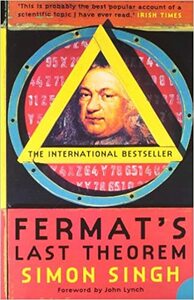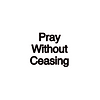You need to sign in or sign up before continuing.
Take a photo of a barcode or cover
I was torn between 4 and 5 stars, because it's pretty impressive that he wrote such a good book about such a nerdy and esoteric topic, but there were needless digressions that could've been filled with more math meat. Everything about cryptography didn't need to be here, and was repeated (though of course expanded upon) in his cryptography book. And, I know there's that saying that every equation in a popular book cuts its sales in half, but come on ... it's a book about math! Include more math! Even the damn appendix was sparse on that front. I'm probably just a huge nerd, but still.
challenging
informative
fast-paced
challenging
informative
inspiring
medium-paced
Simon Singh proves once again that not only are mathematicians weird, but they're entertainingly weird.
I vacillated between three stars and four stars for my rating. It's a good book, well worth reading, but it's not a monumentally good book. Yet three stars sounds average, which this book is not, so I'm giving it four stars. But 3.5 stars would be more accurate.
I vacillated between three stars and four stars for my rating. It's a good book, well worth reading, but it's not a monumentally good book. Yet three stars sounds average, which this book is not, so I'm giving it four stars. But 3.5 stars would be more accurate.
challenging
informative
inspiring
medium-paced
An excellant book which not only explains the story behind the proving of a 300 year old theorem but also serves as a history of Maths.
See my full review here: http://oneexwidow.blogspot.com/2010/03/fermats-last-theorem.html
See my full review here: http://oneexwidow.blogspot.com/2010/03/fermats-last-theorem.html
challenging
funny
informative
inspiring
reflective
relaxing
medium-paced
Amazing book! It explains the theorum in a way that anyone could understand, presenting the complex beauty of mathematics in a clear and simple way. Loved this book, the history attached and the sheer dedication of all the mathematicians that worked on this problem over the centuries.
This was absolutely fantastic. I've been a massive fan of Simon Singh for many years, and can credit a good portion of the reason I ended up doing my current University Degree to his The Code Book which I loved and read religiously as a child. Therefore, it should be shocking for me to say that I had in fact never read Fermat's Last Theorem before now. Luckily, my good friend Emily - my partner in the cryptography obsession of my youth (and let's be honest, young adulthood) - received this book for her birthday, and I was able to snag it from her as soon as she finished it. It really manages to be an impressively gripping read, and Singh has a fantastic gift for storytelling (insert slightly boastful anecdote about how I've met him, and he's just as gripping in person). Singh begins with Wiles' incredible proof & the story of how he came to find out about it, and then jumps back all the way through history to the Ancient Greeks, beginning with Pythagoras and his invention of logical proof, and importantly Pythagoras' Theorem, which would inspire the much more complex Fermat's Last Theorem. And, so begins a mathematical tour-de-force, which whisks the reader through the many complex steps on the path to proof, including interesting tidbits, dramatic personal lives, and tragic almost-proofs along the way. A few of my favourite parts were the sections on Sophie Germain (which includes a tangent about Hypatia and Agnesi, exploring women in mathematics and why it can seem there are so few), and the shockingly long section on Galois (for a man that died at 20, a lot of things happened to him). As Singh reaches his conclusion, and we hurtle towards the present day, I found the book to be genuinely quite tension filled. Despite knowing that Wiles would eventually successfully publish a proof to Fermat's Last Theorem, and prove the Taniyam-Shimura conjecture to be true, it is so masterfully written that I still was sat on the edge of my seat, wanting to know what would happen next. I'm sure it almost mimics who Wiles felt, the long slow drive towards a proof, and then the frantic climax, only to be followed by horrible tension again about whether the hole in his proof would indeed be patched. If I'm completely honest, I cried a little at the end, so emotional was I for his final proof. This really was just a completely fascinating & engrossing book, and Singh remains the absolute King of popular science maths books.
funny
informative
medium-paced
informative
inspiring
fast-paced


